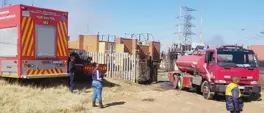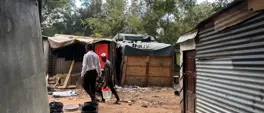NUM delegates divided on calls to legalise artisanal mining
Nokukhanya Mntambo
14 June 2024 | 6:40On the third and final day of the National Union of Mineworkers (NUM) policy conference in Boksburg on Thursday, delegates were still divided on how to address the matter.
JOHANNESBURG - There is still a split opinion on calls to legalise artisanal mining as zama zamas continue to undercut the mining sector.
Some in the labour sector blame poor policing and non-compliance by big business for the dangerous and costly trade.
On the third and final day of the National Union of Mineworkers (NUM) policy conference in Boksburg on Thursday, delegates were still divided on how to address the matter.
In addition to the energy and logistics challenges in the mining industry, crime has also stifled the sector’s growth.
In 2021, government announced the artisanal and small-scale mining policy framework in a bid to legitimise and regulate artisanal the illegal trade.
With artisanal mining still informal, it’s unclear how far along in the pipeline this policy is.
One NUM delegate from the Free State believes the implementation of the framework needs to be expedited.
"Those small companies that are struggling to obtain licenses, we must create some sort of temporary arrangement in terms of temporary licenses so that those people can mine."
But the Congress of South African Trade Unions (COSATU)’s general secretary, Solly Phetoe, disagreed.
"Let’s not fall into the trap of legalising zama zamas."
Illegal mining is estimated to cost the economy around R70 billion a year.
Get the whole picture 💡
Take a look at the topic timeline for all related articles.












